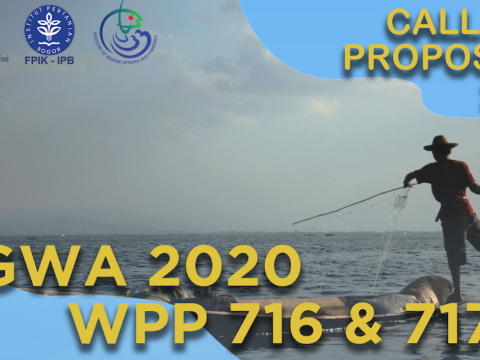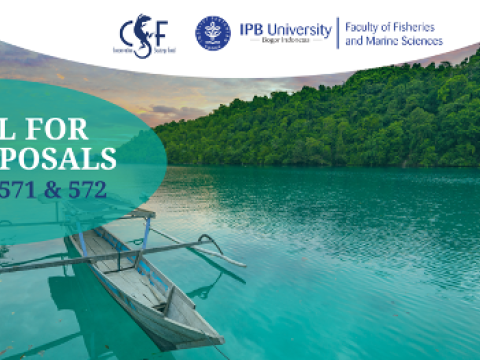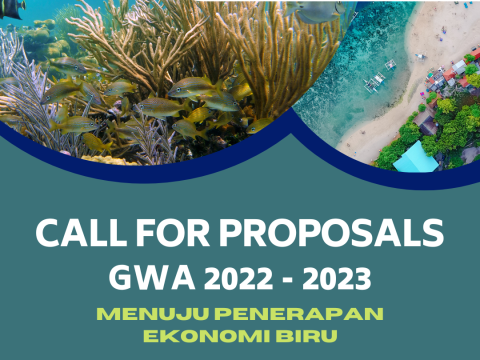The 2022 - 2023 Groundwork Analysis Program has officially launched!
|
About the Groundwork Analysis (GWA) Program: |
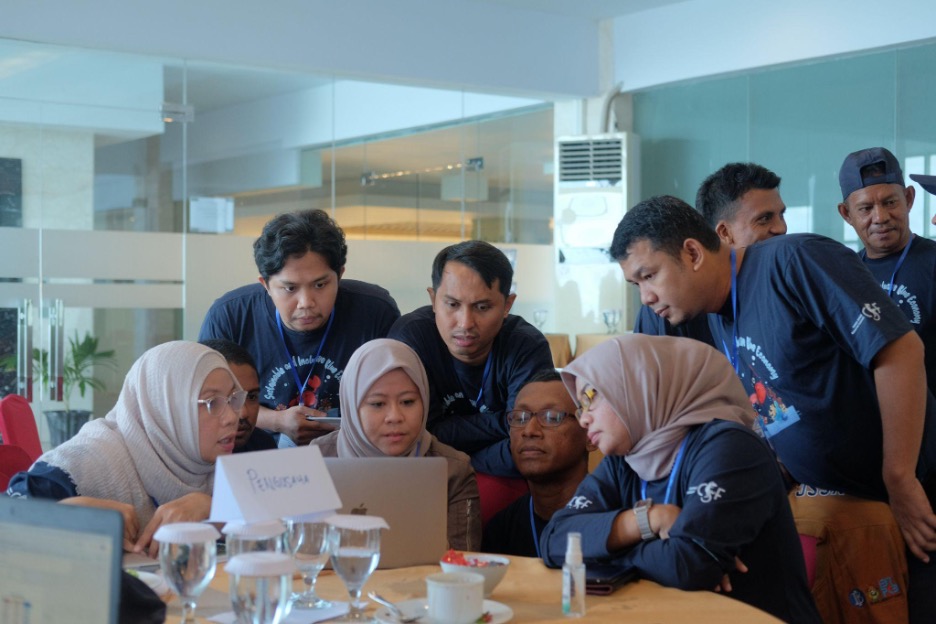
The 2022 - 2023 Groundwork Analysis (GWA) Program has officially launched!
In November 2022, we launched the fourth GWA fellowship program. This year, our fellows’ research will cover four eastern parts of Indonesia’s Fisheries Management Areas (FMAs), FMAs 713, 714, 715, and 718. These areas possess pivotal roles in the welfare and development of coastal communities in the eastern part of Indonesia.
Through a rigorous selection process, we have chosen ten consortiums to support this year-long program. We are proud to support their valuable research across the FMAs where they are already working, with each area having the potential to bolster the blue economy (an economic system or sector that seeks to conserve marine and freshwater environments while using them in a sustainable way to develop economic growth and produce resources such as energy and food) in a unique way.
On FMA 713 lies The Makassar Strait which is a hub that connects the Western, Central, and Eastern parts of Indonesia, it is also a gate that connects Indonesia with the International borders of the Philipines and Malaysia. These seas within the FMAs are also located directly on the Coral Triangle, which harbors vital marine biodiversity. Facilitating exchange between the Pacific and Indian Oceans, the strait allows for the migration of beloved yet threatened marine species. To the north of the Makassar Strait are nesting sites of the Pacific Leatherback Turtles, and to the south are the Spermonde Islands, where whale sharks are known to gather, despite often traveling alone.1 With Leatherbacks lingering at a vulnerable status and whale sharks classified as endangered by the IUCN, protecting the regions that serve as feeding and reproductive sites for these animals is crucial for their survival.
Within FMA 714 is the Banda Sea, where the ‘Spice Islands’ are found. This marine area’s geological and climatic history and resilience to climate change have facilitated speciation and resulted in high species diversity. The Banda Sea’s depths have sheltered reefs from sea level regression. Conservation of this region could allow it to provide the same shelter to other marine species as their homes are threatened. Like the Makassar Strait, the Banda Sea is also a nesting region for Pacific Leatherbacks and boasting high diversity in terms of whale and dolphin species, it serves as a point of congregation for the endangered and typically solitary Blue Whale for a quarter of the year.* This area is vital for researchers looking for solutions to the climate crisis, as a better understanding of this area’s natural resilience will serve our efforts to protect the many species finding refuge in this area of the world, and will help us to protect other marine regions under threat.
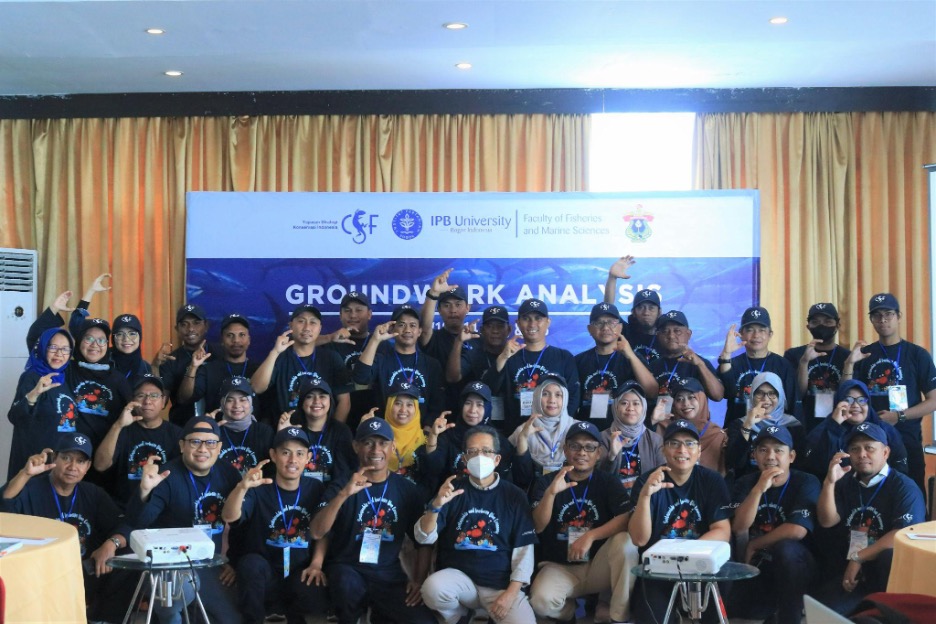
We launched the fellowship with a four-day training in Makassar City, South Sulawesi with our partners FPIK IPB University and Hasanuddin University. At the training, “Marine and Fisheries on Indonesia’s Blue Economy Framework on the FMAs of the 713, 714, 715, and the 718” we welcomed 56 participants from across the FMAs, both in-person and virtually.
Over the course of the training, we introduced participants to the economic tools we are using to support the Sustainable Development Goals for Indonesia’s Marine and Fisheries sector. Experts on the Blue Economy contributed valuable information through this training, offering guidance to participants as they prepare to apply their expertise to their research during the fellowship.
“There are so many lessons that I received within the training, especially the instructor's message to us to develop our mind on critical thinking as the first step, then on solving the issue on Blue Economy implementation i.e. in South Sulawesi, equipped with the right methodology. This training gives us much knowledge that will help us in our research.”
- Rizky Utami, a lecturer in the Faculty of Economics and Business at Hasanuddin University.
Rizky is one of the selected consortium members doing research in GWA 2022 - 2023. She is approaching her research, titled “Carbon sequestration by a few marine cultivated macroalgae in South Sulawesi: observation and projection for blue-based carbon trading,” with the goal of producing a policy brief that will become a framework for the development of macroalgae management in South Sulawesi. Such a development could ensure community economic development and blue-based carbon trading for the environment.
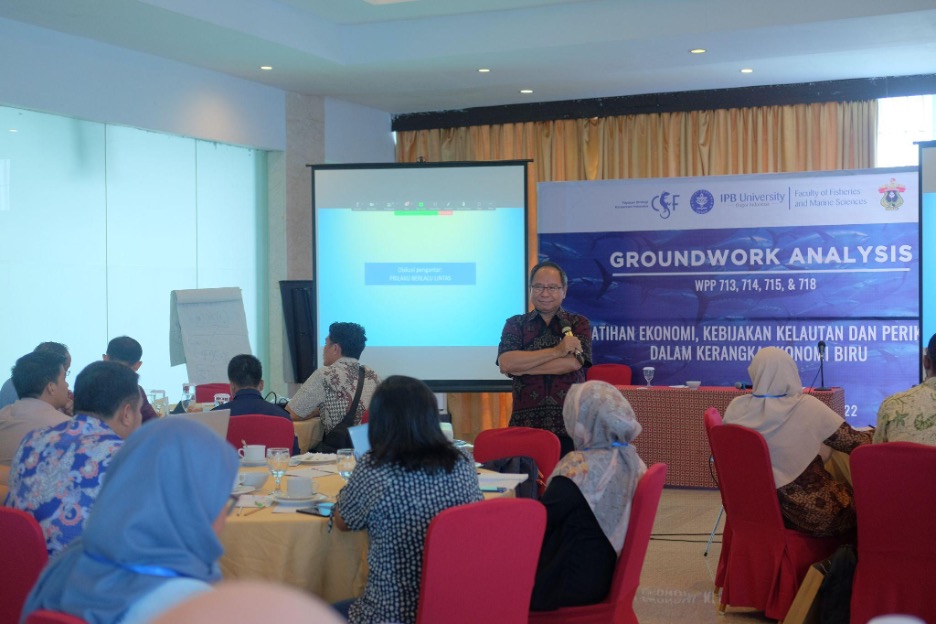
This work is made possible by the generous support of Margaret A. Cargill Philanthropies and the Walton Family Foundation.
* Huffard, Christine & Erdmann, M.V. & Gunawan, T.. (2012). Defining geographic priorities for marine biodiversity conservation in Indonesia.
- Log in to post comments

